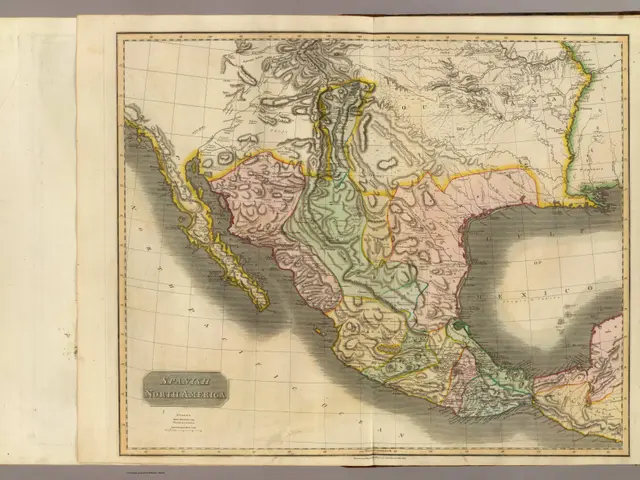Macron Inducts Into the Club of Climate Villains
EU Climate Targets: A Delicate Balance
Emmanuel Macron, the French President, has been spearheading a push to postpone the setting of the European Union's (EU) next climate goals, a move that has stirred controversy and raised concerns within the bloc.
Macron's focus on delaying the bloc's 2040 climate target has inadvertently turned the EU's 2035 goal mandated by the Paris Agreement into collateral damage. The EU Commission's proposed 2035 target is an emissions cut of 72.5% compared with 1990 levels, but Macron suggests a range for the 2035 target, potentially lower than the Commission's proposed figure.
This decision has placed Macron in the same camp as traditional climate blockers such as Poland and Hungary, potentially weakening the bloc's green ambitions. Poland's deputy climate minister, Chris Bolesta, supports Macron's initiative to postpone the 2040 target, while Prime Minister Giorgia Meloni of Italy does not agree with the Commission's proposed 2040 goal.
Other key opponents, including Hungary, the Czech Republic, and Slovakia, have described the Commission's ambition as excessive and have demanded changes to existing green legislation. Notably, Donald Tusk has voiced fierce opposition to the Commission's 2040 goal.
Last week, the vote to set the EU's targets for 2035 and 2040 was cancelled, leaving the EU struggling to comply with the Paris Agreement, exactly 10 years after France led the world to the breakthrough climate accord. The cancellation of the vote has been attributed to France's demands for the 2040 target, which include technological neutrality, revising the green tariff, protecting steel manufacturers, preferential treatment for made-in-EU goods, distributing climate efforts more evenly among EU countries, and funding to support the green transition.
Climate advocates express concern over a potential lower 2035 target, stating it cannot be lower than 72.5% to maintain the EU's green credibility. Macron, however, insists he supports rigorous climate targets but wants more time to ensure the EU is getting this decision right.
The 2040 target discussion will be on the leaders' summit agenda in late October, requiring unanimity among the 27 countries. The outcome of this discussion could shape the EU's climate policy for the next decade and beyond, and will be closely watched by the global community.
Read also:
- Amidst India's escalating climate crisis, transgender individuals continue to persevere
- Contentious Discussion Surrounding the Movie Release of "Planet of the Humans"
- Germany's three-month tenure under Merz's administration feels significantly extended
- Norway set to allocate proceeds from sales of tickets for a soccer match against Israel to Médecins Sans Frontières (MSF)








